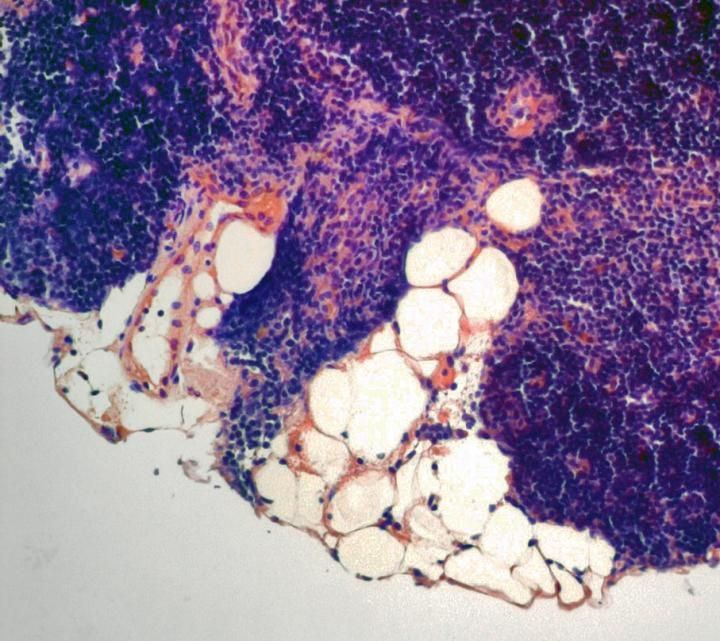FGF21, The Hormone That Makes You Live Longer, Boosts Your Immune System And Activates Weight Loss

Researchers may have found a new use for a liver-produced hormone that manages the thymus gland. Known as fibroblast growth factor 21, or simply FGF21, the hormone was shown to extend the life of mice in the study, which was conducted at the Yale School of Medicine. The results suggest increased amounts of FGF21 could help boost the immune systems of elderly people.
The thymus is a lymphoid organ in the immune system that develops T cells, agents that fight infection in the body. It's pretty important in maintaining the immune system, but as we age, it loses most of its fat and the ability to produce T cells. Lower levels of T cells leads to a weakened immune system in elderly patients — many of whom end up being at a higher risk for infections, like pneumonia, compared to the general population.
In addition to helping produce T cells, FGF21 is known to be an endocrine hormone that manages metabolism, weight loss, and glucose levels. The hormone has been linked to burning brown fat (also known as "good fat"), and contributing to anti-obesity processes in the body. Because research found FGF21 has the power to suppress appetite as a form of calorie-intake management, it's possible that FGF21 could protect against obesity and play a role in future treatments. Other studies have discovered FGF21 may contribute to protecting the cardiovascular system.
In order to see how FGF21 impacted the immune system and lifespan, the Yale researchers examined mice who had high levels of the hormone. After toying with the hormone to remove its function, they watched as the amount of FGF21 in the mice dropped. Lower levels of this hormone resulted in a decrease in the fat and function of the thymus; on the other hand, increasing the hormone levels led to protection from age-related thymus degeneration and boosted the immune system.
"We found that FGF21 levels in thymic epithelial cells is several fold higher than in the liver — therefore FGF21 acts within the thymus to promote T cell production," Vishwa Deep Dixit, a professor of comparative medicine and immunobiology at Yale and an author of the study, said in the press release. "Elevating the levels of FGF21 in the elderly or in cancer patients who undergo bone marrow transplantation may be an additional strategy to increase T cell production, and thus bolster immune function."
The researchers plan on further examining the functions of FGF21, and learning how it can be applied to fight aging. With its caloric intake reduction, anti-obesity, and anti-aging features, it’s possible that FGF21 may be a valuable tool in future treatments.
Source: Youm Y, Horvath T, Mangelsdorf D, Kliewer S, Dixit V. Prolongevity hormone FGF21 protects against immune senescence by delaying age-related thymic involution. Proceedings of the National Academy of Sciences, 2016.



























